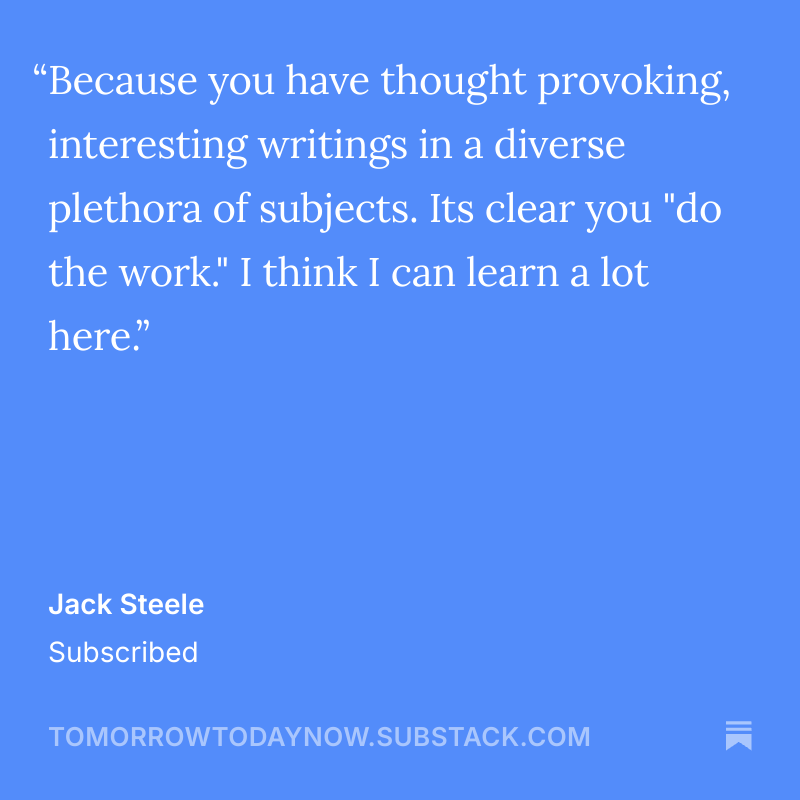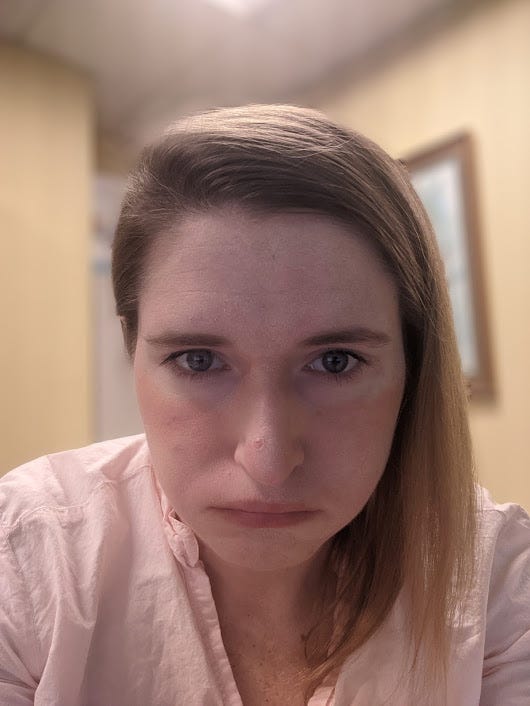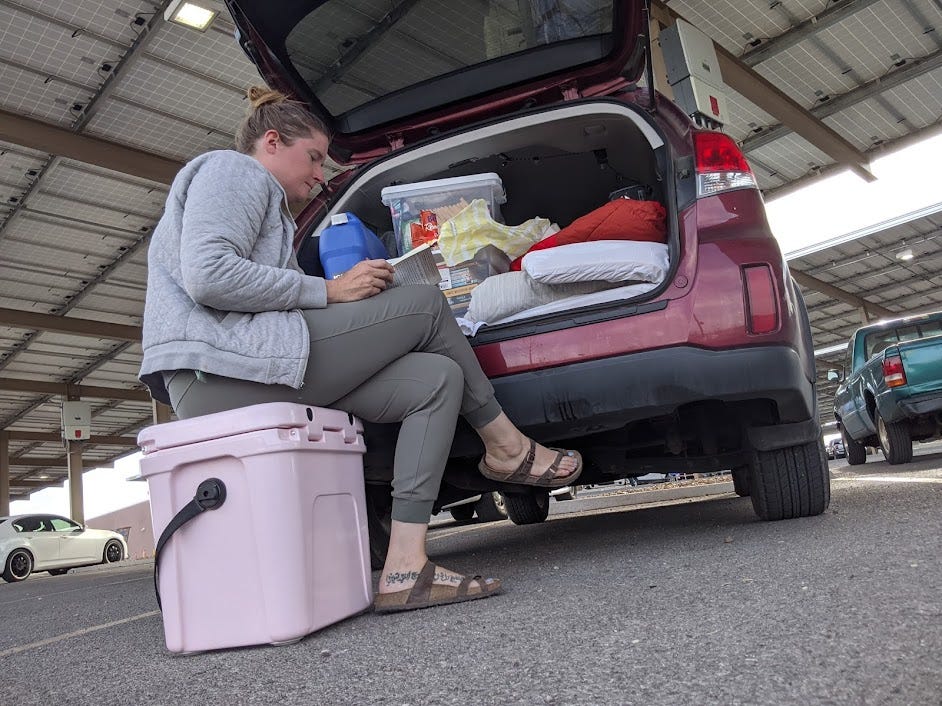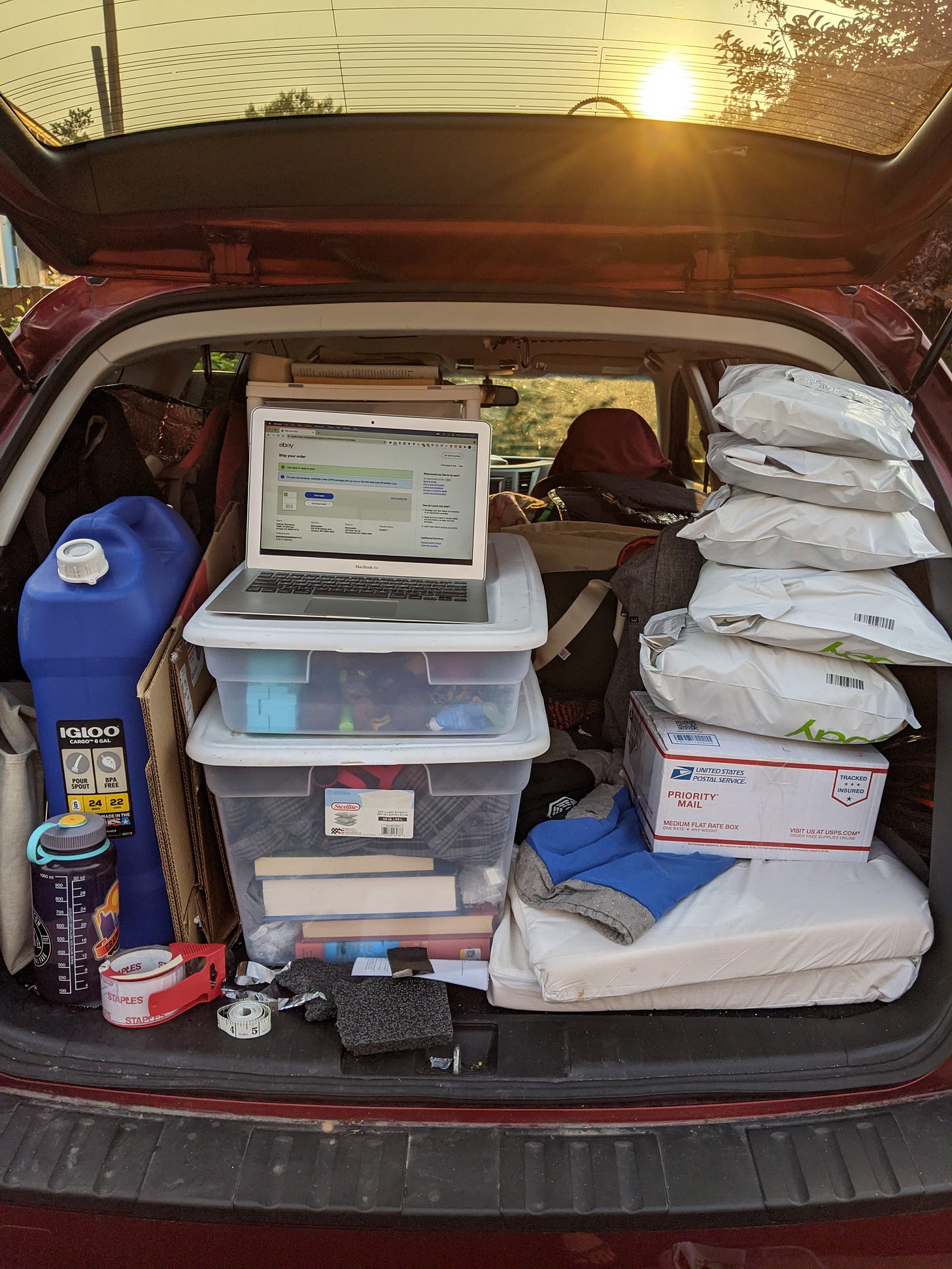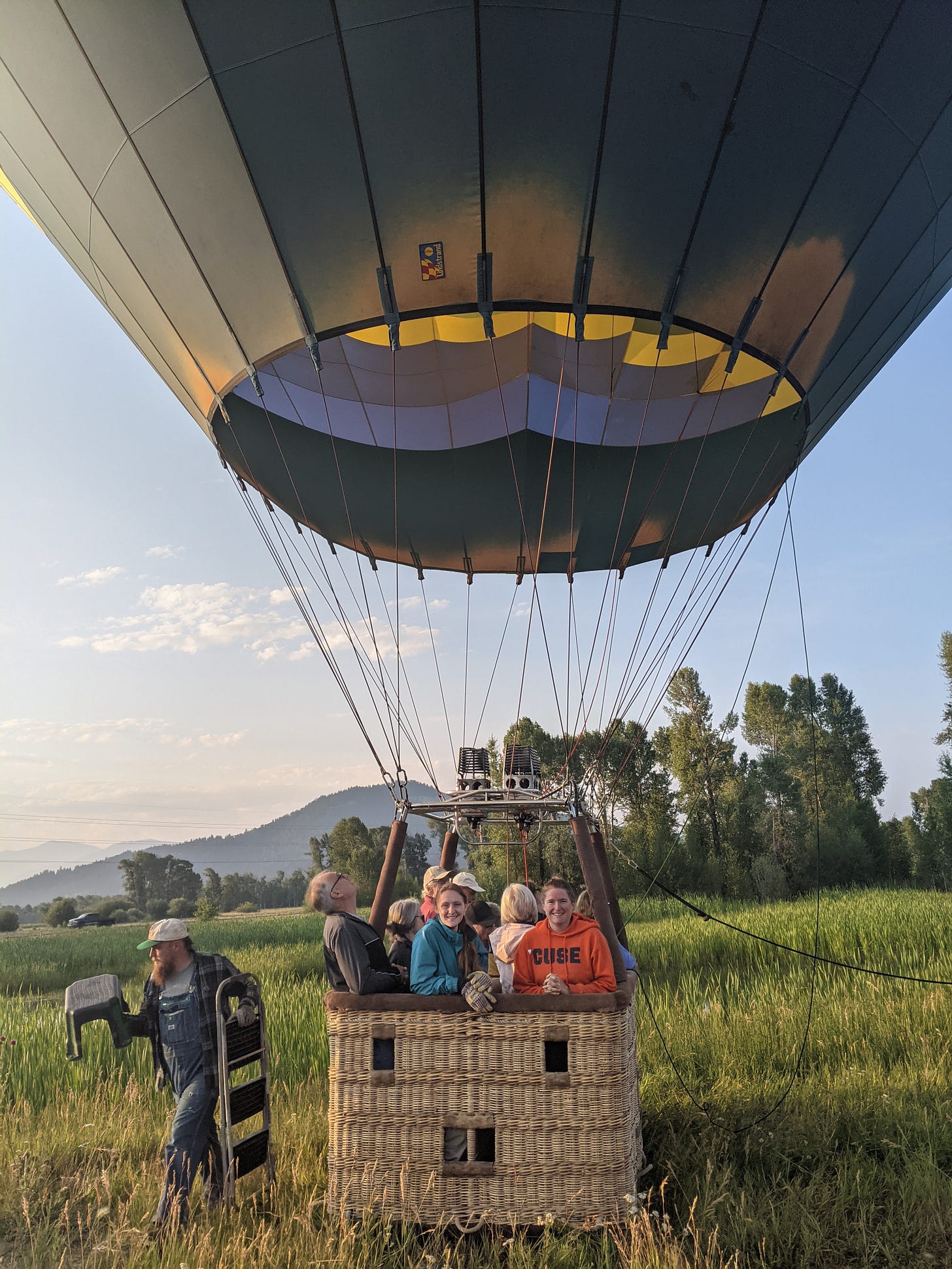I think we’re living in the midst of a Gutenberg Press moment. That’s a BFD.

In the middle of the 15th century, a German goldsmith invented a device that would change the world.
It wasn’t so much about what the printing press could do — reproduce the written word as books, pamphlets, and newspapers — it’s how the printing press gradually reshaped society over time.
Anyone could come up with an idea and share it. That’s something we take for granted today but it was revolutionary just a few centuries ago.
I think we’re living through a Gutenberg Press moment. But this time, instead of simply printing new ideas, our society’s transformational technology — artificial intelligence — is creating them. With it an entirely new, inorganic life form is about to emerge.
We’re entering into a period of great disruption as new technologies converge and dismantle everything we know about our existence.
Tomorrow Today looks at history, contemporary politics, economics, and society to give you an idea of where we are today so you can prepare for where we are going tomorrow.
It raises thought-provoking questions few people are asking such as:
Will the need to validate humanness inevitably lead to the emergence of a techno-surveillance state?
Will traditional gender roles re-emerge as a way to make humans distinct from AI?
Everything about our lives — ranging from how we value ourselves to how we value others in society — is about to change. We have to start asking these questions today so we can plan for the new world that emerges tomorrow.
No one is talking about how AI is going to destroy millions of jobs and the sense of purpose we get from them. Tomorrow Today is.
I don’t think this is hyperbole. We’re about to witness a profound transformation of society at scale.
Here’s what Steve Bannon had to say to Axios about the white-collar bloodbath that’s heading our way:
Tomorrow Today is one of just a handful of publications having this conversation. You won’t see the ideas you read in Tomorrow Today anywhere else.
As a free subscriber here’s what you can expect:
Weekly Newsletter: The Big 5️⃣ is a weekly newsletter that looks at economic disruption as it’s happening. It dives into the unintended consequences of the choices we make today and what you should know to make yourself more adaptable for whatever comes tomorrow.
Occasional Long-Form Essays and Previews: Essays cover a variety of topics. You’ll get a preview of what the essay talks about.
As a paid subscriber, you’ll get The Big 5️⃣ newsletter as well as:
Long-Form Essays: Essays are published every Tuesday and Thursday. You’ll get to read each essay in full when it’s fresh off the digital press. These are the most popular subscriber-only essays right now:
Comments Section: Comments are limited to full subscribers. This is an opportunity for you to share your perspective. I read and respond to every comment and I really do value perspectives that add nuance to the conversation.
Special Projects: I’m working on a couple of special projects. One is a ChatGPT-generated class on the history of modern economic thought. Another is a series on the Gen Z employment crisis that I would love to turn into a book. I’d also like to start a podcast interviewing Main Street Americans about how the economy is doing in their neck of the woods. Your support helps get these projects across the finish line.
Support a Millennial perspective: Did you know the median age of the producers of Substack’s top political publications is 55 years old? I grew up in a different time in history and bring a different perspective to the conversation about AI, technology, and economic displacement. My goal is to use this platform to bring the generations together, rather than sowing further discord.
Here’s an insight into how AI is displacing workers.
I’m not just writing about AI taking over and people losing their jobs from a theoretical perspective — I’m living it too.
For the past couple of years, I’ve been producing my own essays while also freelance writing. Freelancing was paying the bills until it stopped.
As AI has come online, it’s changed how people access information and thus how advertising is deployed. The business model that worked for digital media just a couple of years ago is now completely obsolete. Work for freelancers has almost completely dried up.
Let me give you an example of what this looks like from a real person who’s just like you.
I was a freelance writer for Forbes Advisor. Forbes Advisor is an affiliate website. They make money by promoting products and earning commissions from readers who purchase those products.
I’m going to be honest, I didn’t really know or care about how their business model worked. All I cared about was that they paid me $500 per article, they paid on time, and those articles took about 3.5 hours to complete.
Freelance writing subsidized my time so I could write essays like the ones you read here on Tomorrow Today.
All of that changed in 2024 when Google made an algorithm change. Overnight they started penalizing digital publications that hired freelancers to write their content. Website traffic tanked which means advertising revenue evaporated. Freelancers don’t get pink slips so I lost most of my work without any warning.
I hoped things would get better but they didn’t. In the last year, Google’s algorithm change — combined with more people using AI instead of search engines — has tanked digital media. Work has completely dried up.
To give you an insight into just how upside down things have gotten — at least from a digital media perspective — this is an actual job announcement someone at Forbes Advisor recently posted on LinkedIn:
You read that correctly: the same work I did as a freelancer for $500 an article just a year ago is now being offered as a full-time internship for $20 an hour.
The game has clearly changed. This is what’s coming for a lot of workers, not just freelance writers. I’m skeptical things will ever go back to the way they were.
I’m now doing Substack full-time. I think these conversations are important to have but no one is having them.
Plus we’re moving into a post-work world anyways. I need to let go of what my conceptualization of work is. Like you, I’m quite literally in the trenches as we all try to figure out what this new world looks like.
As one subscriber said “it’s clear I do the work”:
Your subscription DOES have a real impact.
By becoming a subscriber, you’re letting the Substack algorithm and other readers know that this is important work.
But in addition to that, when you subscribe to Tomorrow Today you’re essentially becoming a patron of this work. You’re making it possible for me to research topics, buy books on those topics, write essays, and engage with you in the comments.
Without your support, none of this would be possible.
An annual subscription is $35/year or a monthly option is available for $5/month. Here’s what your subscription allows me to do and how it will impact my life, helping me produce even better content for you:
18 new subscribers — pay off my car. I drive a 2014 Subaru Outback. This will be the first piece of property I own outright.
57 new subscribers — become a Substack bestseller. This is a vanity metric but having the little checkmark next to your name makes you feel like you’ve made it. At least in my head it does.
96 new subscribers — join a writer’s workspace in Austin. I spend most of my days writing in solitude at home. I don’t mind working from home but I miss working around other people. Having access to a community of writers allows me to hone my craft while also mentoring younger writers who are just getting started.
2,583 new subscribers — break even for a year. This covers all of my expenses for a year. Rather than wasting time figuring out how I’m going to rob Peter to pay Paul, I can just focus on writing.
2,650 new subscribers — take two weeks vacation. When you work for yourself you don’t get holidays off or vacation time. Having vacation time banked up, so to speak, allows me to take respite when I need it and come back to writing recharged.
4,824 new subscribers — write a book. If I accomplish nothing else in life, I just want to write one book. Right now I’d like to write a book about how the future of work is changing and what that means for Gen Z. Reading this book when I was in my 20s would have saved me a lot of heartache and mental anguish. I think the book that I envision writing would have the same impact on Gen Z.
6,004 new subscribers — pay off my student loans. I’m not going to lie, it’s not about the loans it’s what they represent. I bought into to lie that college would help me succeed but instead it turned me into a modern day indentured servant. Achieving this goal would help me close this chapter of my life and move ahead with a clean slate.
As of June 2025, Tomorrow Today has 43 financial supporters. Your support helps me achieve these goals and take Tomorrow Today to the next level.
Thank you for support and helping share this content with readers will hopefully find as much value in it as you do.
About me.
My name is Amanda and I’m a failed 9to5 worker. This is a picture of me from 2022 at my last full-time office job. The boredom was real.
When I went to college, my dream was to become a spy for the CIA. I lived in the Middle East and studied Arabic after I graduated. When I came back to the States, I moved to Washington, DC and started the recruitment process.
Things didn’t work out as I had planned. I ended up finding work in defense contracting instead. I did open source intelligence collection in Syria. I managed a multi-million dollar counter nuclear smuggling program in the Middle East. And I was part of a team that managed the sale of weapons systems to our allies.
On paper I had some really cool jobs. In practice, they were utter bullshit that slowly killed my soul. I attended meetings where no decisions were ever made. I spent hours writing emails no one read. I moved images around on slide decks that no one paid attention to during briefings. I did all of that to earn a paycheck that barely covered the cost of living in DC.
When I left my job in 2019, I told the guy managing my program that DoD couldn’t keep solving problems by PowerPoint. If AI is any indication, I think I was right.
During the COVID lockdowns I decided no time was like the present to fulfill one of my bucket list dreams: do a cross country road trip around the U.S. I couldn’t afford a fancy Sprinter van so I did the whole vanlife thing while living in my 2014 Subaru Outback.
At the time, I was trying to build a personal finance blog but it failed spectacularly. I supported myself on this trip by going to thrift stores, buying used books, and flipping them on eBay and Amazon.
I don’t care what the Amazon FBA hustle bros say, scaling an Amazon business is hard AF. I made decent money flipping books but it wasn’t consistent. I arrived in Jackson, WY in June 2021 and decided to spend the summer working there.
I worked at the front desk of the rec center, sorted recycling at the county recycling center, was a barista at the main coffee shop in town, and twice a week I woke up before sunrise to be a hot air balloon chaser.
After all the adventure of my 20s, I think I’ve finally settled down. These days I call Austin home. Aside from writing, I’m a runner and I love to bake. My dream is to run the Boston Marathon. I “qualified” in 2024, but because the field was so competitive, I didn’t get a bib. I’ll be running my 11th race this fall. Fingers crossed it will be a qualifying race 🤞
I have a very interesting perspective on the world to say the least. I look forward to sharing that perspective with you.
-Amanda
P.S.
Are you feeling subscription fatigued?
I know I am. If you like what I’m doing but don’t want to be a subscriber, you can make a one-time contribution by clicking the button below.








